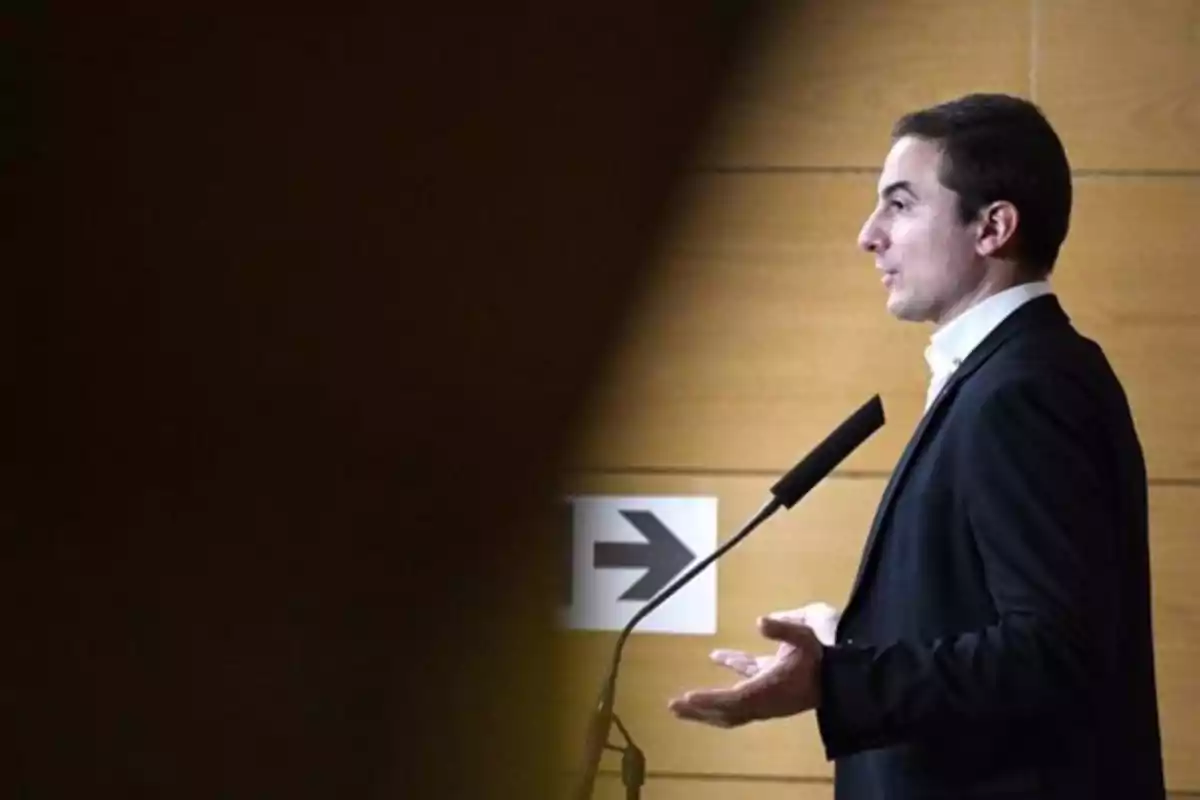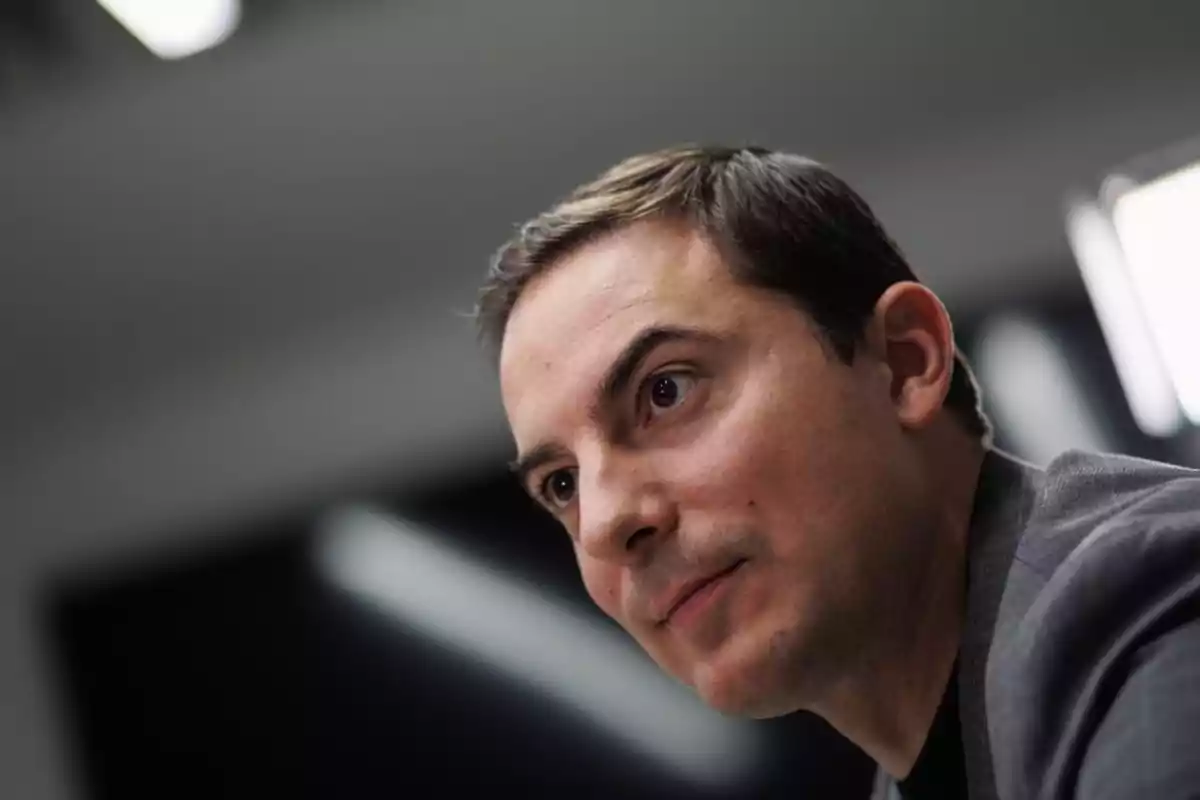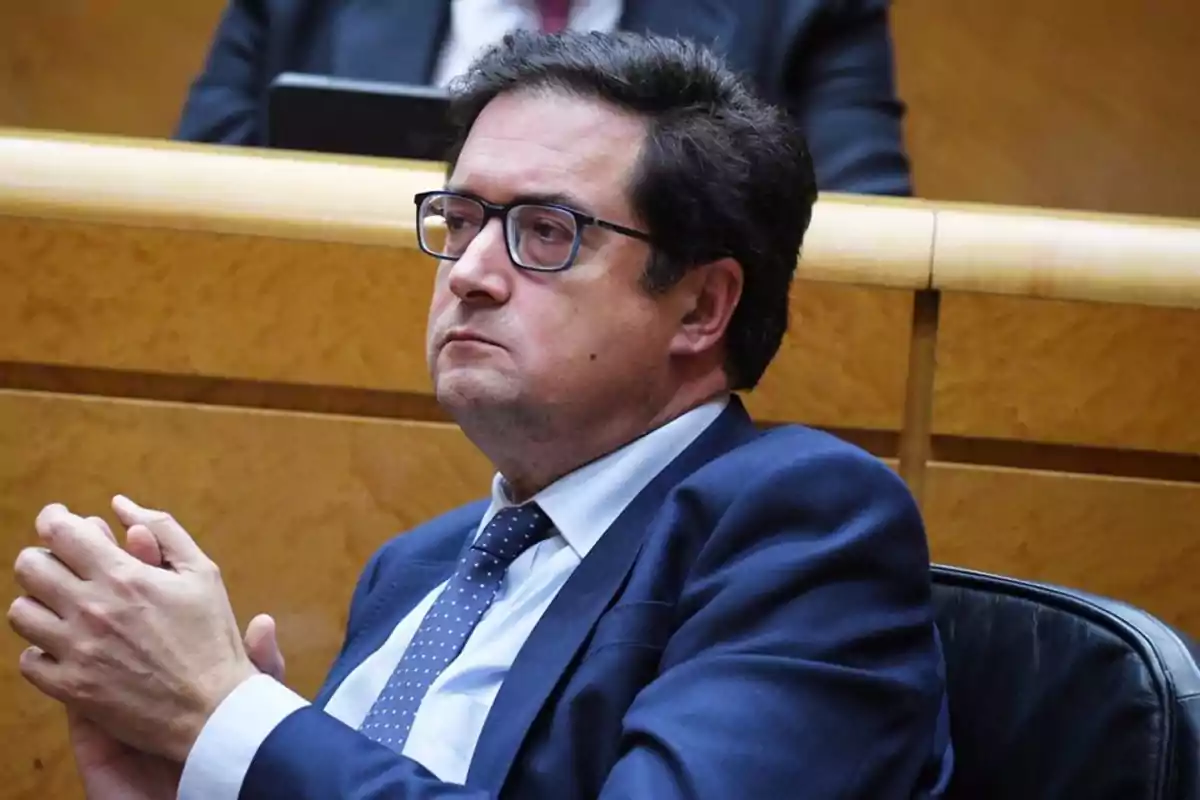
Juan Lobato Juggles 5 Open Fronts: From a Madrid Lobby to the Senate
The former general secretary of the Madrid PSOE works at the Tax Agency, is a regional deputy, and maneuvers within his party
"Juan Lobato had been assuring for years that he would leave frontline politics because he was a Treasury official and didn't need the public seat. But now he won't leave even with hot water." With these words, they show in Ferraz the weariness that exists about the former general secretary of the Madrid PSOE. His replacement, Óscar López, refuses to even mention him in public.
Currently, Lobato juggles to balance his seat in the Madrid Assembly, his position as a senator (from which he doesn't earn), a part-time position as an official of the Tax Agency (which prevents him from earning from the Upper House), his maneuvers within the Madrid PSOE, and the push for the new political think tank that has emerged at the Círculo de Bellas Artes.
In this scenario, La Plaza del Círculo has been launched, supported by former mayor Juan Barranco and former deputy mayor Begoña Villacís. "They are people who call themselves centrists. They say they abhor the hyper-leaderships of Pedro Sánchez in Spain and Isabel Díaz Ayuso in the Community of Madrid," informed sources indicate.
Fall and Agreement
On November 25 of last year, Abc reported that Juan Lobato had gone to a notary to officially record a conversation held via WhatsApp with Pilar Sánchez Acera. At that time, she was the chief of staff of Óscar López. In that exchange, Sánchez Acera sent Lobato an email sent by the lawyer of Isabel Díaz Ayuso's boyfriend to the Prosecutor's Office. In that message, the lawyer proposed reaching an agreement, accepting the crimes attributed to him, in exchange for certain procedural benefits. The intention was for Lobato to use that information in a parliamentary debate in the Madrid Assembly as a political weapon against the regional president.
However, the decision to elevate this matter to a public deed caused discomfort among some members of the PSOE. Relevant members questioned Lobato's handling of such a delicate situation.

Lobato decided to step aside after reaching an agreement with Santos Cerdán. The Organization Secretary secured his resignation as a regional baron and his promise not to seek to renew the position, as he did. In return, the PSOE allows him to remain in the background both in the Assembly and in the Senate.
In the Assembly, he was replaced as spokesperson by Jesús Celada, who has aligned the PSOE's discourse with the anti-Ayuso sentiment promoted from La Moncloa. Óscar López has buried the centrist gestures of his predecessor, who sought tempered audiences through experience. Indeed, Lobato began his political career by taking over the mayoralty of a traditionally conservative municipality like Soto del Real.
In this locality, the right won between 1979 and 2015. Ten years ago, Lobato took over the mayoralty, which he renewed in 2019 with more than 60% support.
Hibernating
"Now he is hibernating, waiting for better times. He says he is incompatible with the current socialist leadership. But he doesn't rule out running in the primaries to lead the PSOE in the 2027 regional elections," explain sources from the Madrid PSOE.
"Lobato played against Pedro Sánchez to be Emiliano García-Page... but he didn't have the power of the president of Castilla-La Mancha," they add.
The Madrid PSOE Accumulates 3 Decades of Crisis
The Madrid PSOE is going through a chronic crisis that has extended for more than three decades. Since Joaquín Leguina lost the presidency of the Community in 1995, the socialists have not governed the region again. But beyond electoral defeats, what has historically burdened the Madrid federation is a permanent internal war. This has been marked by factional clashes, ephemeral leaderships, and constant interventions from the federal leadership in Ferraz.

One of the most paradigmatic episodes was the now-famous "tamayazo" of 2003, when two PSOE deputies (Eduardo Tamayo and María Teresa Sáez) prevented the investiture of Rafael Simancas, opening the door to a repeat election that consolidated the PP in power. Since then, the Madrid PSOE has not been able to fully recover from that blow to credibility and cohesion.
In the following years, figures like Trinidad Jiménez, Tomás Gómez, Antonio Miguel Carmona, or Ángel Gabilondo tried to reorient the party without lasting success. Despite achieving acceptable results in some elections, the socialists were unable to reach power.
The most recent stage, with Lobato as general secretary, also failed to consolidate a new era. Today, Óscar López celebrates the polls (which predict that the PSOE would again be the second force in the Community, after surpassing Más Madrid). But he does so with a small voice because the left would have difficulties facing the PP in a region that in the last 3 decades has leaned toward the right.
More posts: